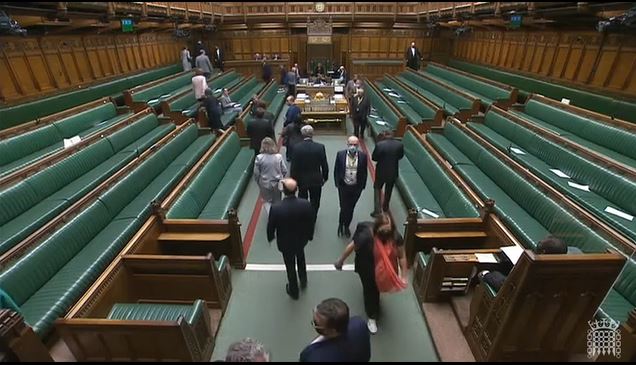- 14/09/2021
- Posted by: Valerie Vaz MP
- Category: News
 Valerie said: Whilst it is right to repeal the Fixed Term Parliament Act, this Bill is an overreaction, based on a false premise: a misunderstanding of the causes of parliamentary gridlock in 2019. I support the democratic principle of fixing the length of a parliamentary term- in most parliamentary democracies, dissolution is controlled by the legislature with varying degrees of involvement of the executive. This is the case for the parliaments in Scotland and Wales, for local councils and elected mayors in England.
Valerie said: Whilst it is right to repeal the Fixed Term Parliament Act, this Bill is an overreaction, based on a false premise: a misunderstanding of the causes of parliamentary gridlock in 2019. I support the democratic principle of fixing the length of a parliamentary term- in most parliamentary democracies, dissolution is controlled by the legislature with varying degrees of involvement of the executive. This is the case for the parliaments in Scotland and Wales, for local councils and elected mayors in England.
The UK’s strong tradition of parliamentary sovereignty turns on the involvement of Parliament in taking any decision to dissolve. Axing parliament entirely from the process is just another attempt by this Government to concentrate power in their own hands and rig democracy in their favour. The Bill skews power towards the incumbent governing party by giving them complete power to decide an advantageous date for an election. Reigniting the royal prerogative represents a step backwards for our democracy. This is just one part of a patchwork of attempts by the Government to centralise power and rig democracy in their favour.
When it was originally introduced, the then Conservative Government heralded the Fixed-term Parliament Act as a constitutional innovation, limiting the power of the executive, which was too dominant compared to the legislature. The subsequent Conservative manifesto of 2015 celebrated this Act as an “unprecedented transfer of Executive power”. This U-turn by the Government is yet another example of bending the rules when it suits them.
Overview of the Bill
- The Dissolution and Calling of Parliaments Bill repeals the Fixed-term Parliaments Act 2011.
- The Bill reignites the prerogative powers to dissolve Parliament and to call a new Parliament, as if the 2011 Act had never been enacted.
- If passed, all future Parliament will be dissolved by the Sovereign, on the request of the Prime Minister, as it was prior to the enactment of the 2011 Act.
- The Bill also provides that Parliament shall sit for a maximum term of five years – if it has not been dissolved earlier, a Parliament dissolves at the beginning of the day that is the fifth anniversary of the day on which it first met.
- This Bill is explicit that the exercise of the prerogative powers to dissolve Parliament, and the extent of those powers is non-justiciable i.e. the role of the courts has been removed. In light of the recent court case on prorogation, returning to a prerogative power could see dissolution subject to legal challenge. The Dissolution and Calling of Parliament Bill explicitly prevents the courts from getting involved.
- There will also be provision made in the Bill to give the Prime Minister the discretion, within clearly defined limits, to set a new polling day in the event of the demise of the Crown. In this very unlikely circumstance, the Prime Minister has the discretion to move the polling day up to seven days either side of this default fourteen-day postponement.
- The Bill will extend and apply to the whole of the United Kingdom, including Northern Ireland.
The Bill passed its Third Reading.

